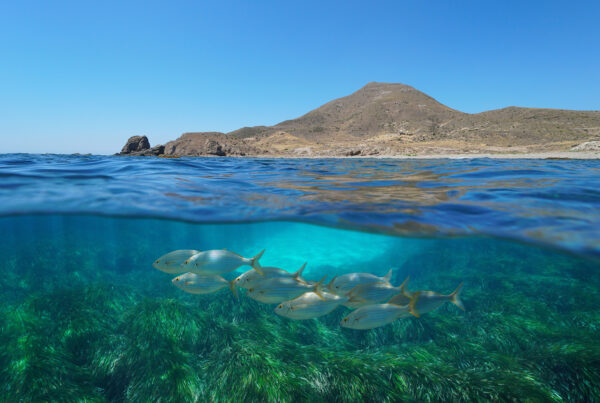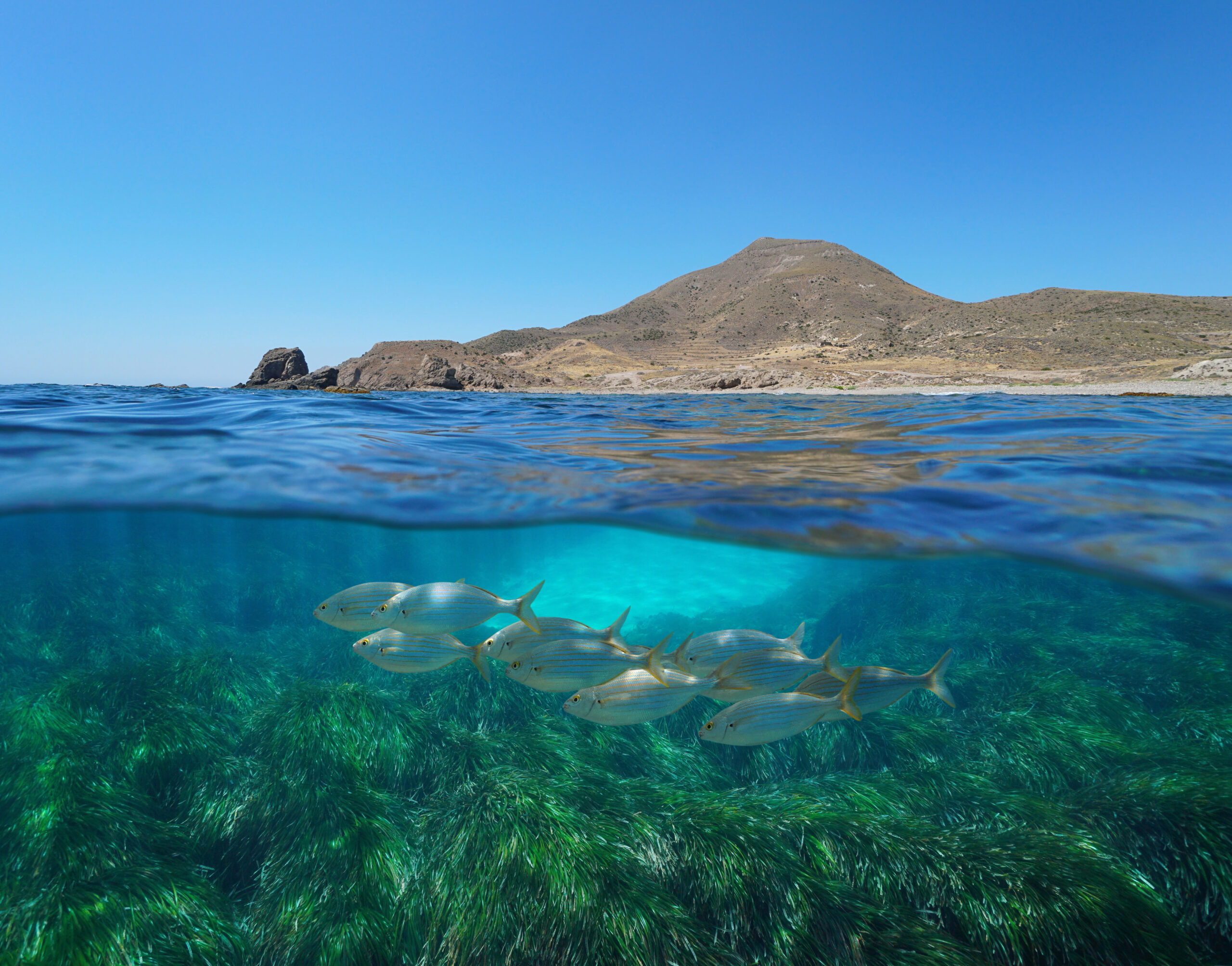March 27, 2024
A first analysis of the perception of the marine Natura 2000 Network in Spain in the framework of LIFE A-MAR
As part of the measurement of the success of the actions of the LIFE A-MAR project, a series of surveys have been carried out among people linked to the marine Natura 2000 Network sites in the Mediterranean in the areas where the project is implemented. In Spain, the Biodiversity Foundation of the Ministry for Ecological Transition, and the Demographic Challenge (MITECO), a project partner, carries out these actions. An initial analysis of perception and knowledge about these protected areas reveals a high appreciation of living near a protected area and, at the same time, a high degree of concern for the conservation of marine biodiversity. The interviewees also show, in general, a favourable personal inclination towards the issues addressed by the project.

Credits by Fundación Biodiversidad – Cabo de Gata – Nijia, Almeria, Spagna.
The LIFE A-MAR NATURA2000 project aims to reduce the impacts on the marine areas of the Natura 2000 Network in Italy and Spain by improving the knowledge and participation of the agents involved, including users linked to sectors such as tourism, fishing, diving, nautical-recreational activities and port authorities, among others. A series of public surveys have been scheduled to assess the project’s success in achieving this objective.
The first survey was carried out to determine the initial situation. In Spain, 281 people participated in this questionnaire; the areas in which project actions are to be implemented belong to 5 autonomous communities in the Mediterranean area. Specifically, they are: Jávea, in the Community of Valencia; Cabo de Palos, Mazarrón and Águilas, in the Region of Murcia; la Almadraba, Cadaqués and Portlligat, in Catalonia; Pollença and Alcúdia in Mallorca, in the Balearic Islands; and Agua Amarga, Las Negras, Rodalquilar and San José de Cabo de Gata, in the province of Almería, belonging to Andalusia. In order to obtain a representative sample, participants from different sectors were interviewed: managers, tour operators, nature field guides, the scientific community, citizens, recreational water sports people, fishermen and tourists.
The questionnaire includes questions about knowledge of the Natura 2000 Network, the LIFE A-MAR project, and its actions, as well as the level of awareness of biodiversity conservation.
The results reflect a high appreciation for conserving marine biodiversity and protecting habitats and endangered species, with 8 out of 10 stating that these areas are essential. Respondents also consider environmental awareness and education activities to have great importance, as there is a negative perception of the general level of awareness of the importance of marine biodiversity protection (5 out of 10 say that the population around them is only somewhat sensitive to this issue). In addition, almost half of the participants consider the state of habitat conservation in their area unfavourable. The problem considered most serious is coastal pollution by plastic waste, which is associated with negligent behaviour.
The LIFE A-MAR project still needs to be better known among users, although most of them have shown a certain level of knowledge about the Natura 2000 Network. In fact, almost 7 out of 10 said they know about the site in this European network of protected areas, and 85% recognised that their area was part of it or was a neighbouring area, and what is more relevant, a positive disposition to participate in some of the actions proposed by the project (7 out of 10 interviewed). It is crucial to highlight the importance that participants attached to communication actions. For most of them, being informed and building strong communication tools, especially digital ones, is essential to achieve biodiversity protection in marine protected areas.
Overall, these surveys have established a reference framework that will allow an effective evaluation of the project’s progress. Thanks to the results, a series of profiles have been drawn up according to the level of awareness and knowledge, and a quantitative index has been created and set up, which will also be applied to subsequent surveys. The aim is to measure the project’s impact and guide LIFE A-MAR’s awareness-raising actions with sea users.







